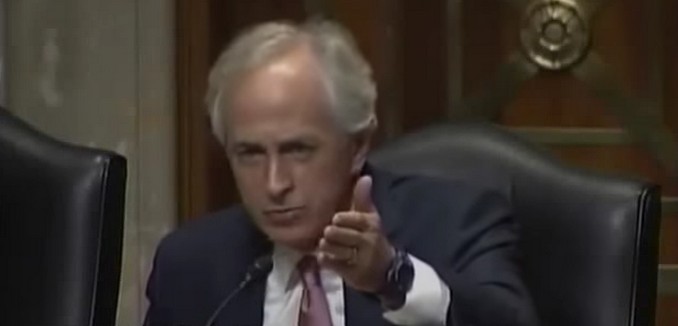In a reversal of the administration’s longstanding objections to congressional oversight of an emerging deal over Iran’s nuclear program, White House Press Secretary Josh Earnest said today that President Barack Obama would sign a compromise Senate bill that was unanimously passed by the Senate Foreign Relations Committee earlier today.
Defense News reports:
In a stunning twist, the White House on Tuesday reversed course and signaled support for a Senate bill that would create a process for lawmakers to review any deal with Iran over its nuclear program.
For months, the White House said President Barack Obama would veto a bill crafted by Senate Foreign Relations Committee Chairman Bob Corker, R-Tenn., and its former ranking Democrat, Bob Menendez of New Jersey, that would set up a vote on any deal with Tehran. …
White House Press Secretary Josh Earnest told reporters Obama is “willing to sign” the revised version of the Corker measure.
The Iran Nuclear Agreement Review Act of 2015, often referred to as the Corker-Menendez bill, had broad bipartisan support—twelve of the bill’s co-sponsors are Republicans and eight are Democrats—but it garnered stronger Democratic support after changes to the bill’s language were made today. The compromise language was worked out by Corker and the committee’s ranking Democratic member, Sen. Ben Cardin (D – Md.), and passed unanimously.
Earlier in the day, a deal was reached on softening some of the terms of the bill in order to address concerns its language. The New York Times reported:
The agreement, struck between Senator Bob Corker of Tennessee, the committee’s chairman, and Senator Benjamin L. Cardin of Maryland, its ranking Democrat, still must be voted on this afternoon, but leaders in both parties expressed their support. One senior Democratic aide said the bill would now have overwhelming, veto-proof support in the full Senate.
Under the agreement, an initial 60-day review period of a final nuclear agreement was in effect cut in half, to 30 days. But the review period would also include the maximum 12 days the president would have to decide whether to accept or veto a resolution of disapproval, should Congress take that vote. It would also include a maximum of 10 days for Congress to decide whether to override the veto.
Mr. Corker also agreed to a significant change on the terrorism language. Initially, the bill said that the president would have to certify every 90 days that Iran was no longer supporting terrorism against Americans at home or abroad. If he could not, economic sanctions would be reimposed. Under the agreement, the president would still have to send periodic reports to Congress on Iran’s activities regarding ballistic missiles and terrorism, but those reports could not set off another imposition of sanctions lifted as part of the nuclear deal.
In addition to the Democratic source in the Times report, who acknowledged that there is veto-proof support for the bill in the Senate, House Majority Leader Kevin McCarthy (R – Calif.) said that “he expected the House to pass [the bill] with a veto-proof majority.”
The administration had lobbied Congress not to pass any legislation that would subject the deal to Congressional review.
[Photo: senatorcorker / YouTube ]




